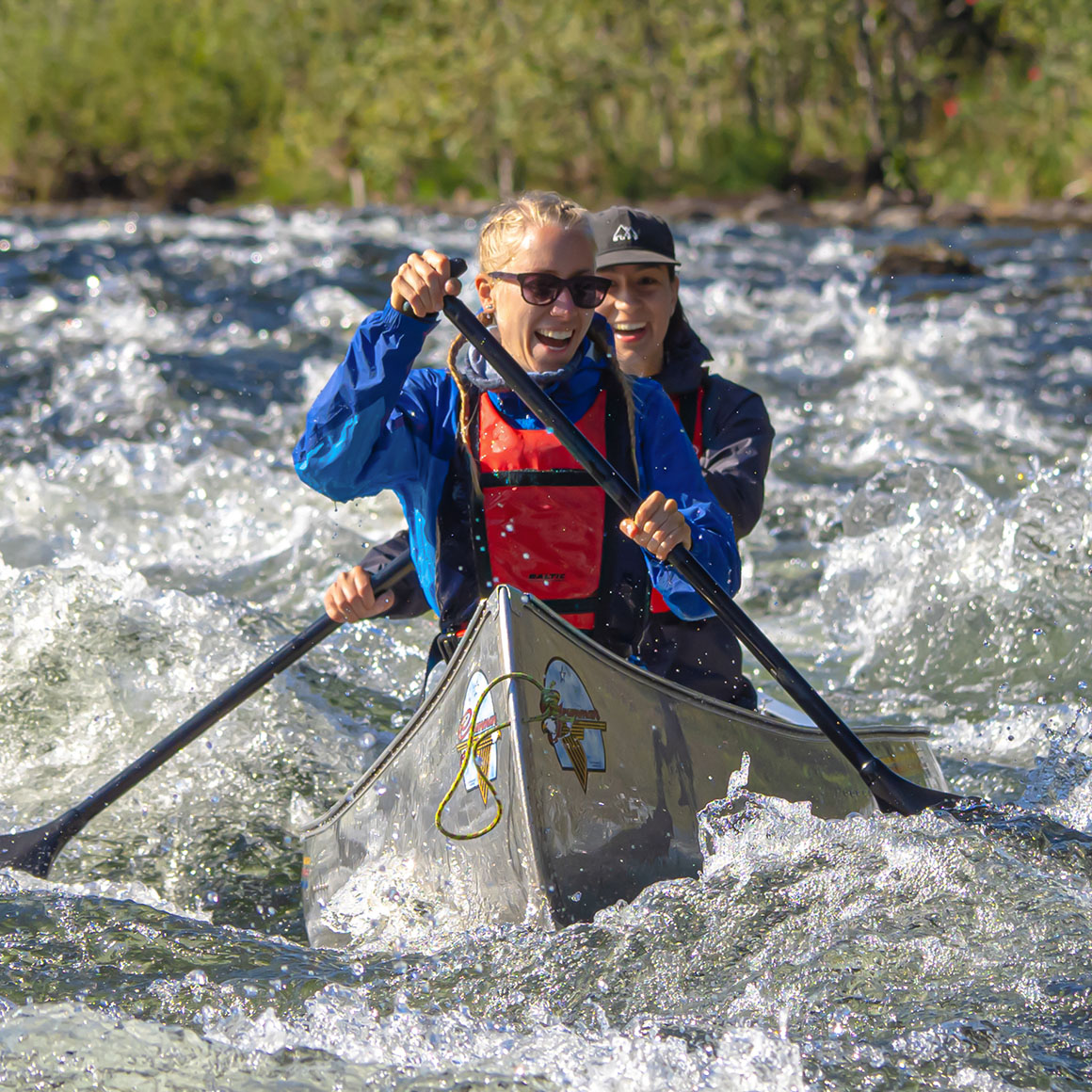
Outdoor Leadership, Culture and Ecophilosophy
Bø - Full time
If you want to learn about and practice Norwegian outdoor life (or “friluftsliv”) this programme is meant for you. The main focus will be on hiking, canoeing and sailing. The study includes both day excursions and extended overnight trips on waterways, in the mountains and forests and at the coastline. You will also get a thorough introduction to the history and development of Norwegian outdoor life and have the opportunity to develop your own relationship with nature.
-
Closing dates: Expired
Study facts
-
Campus: Bø -
Study level: Exchange programmes, bachelor level -
Progression of study: Full time -
Start up: Autumn 2024 -
Teaching model: Campus -
Credits: 30 -
Charge: No tuition fee. -
Closing dates: Expired -
Semesters: 1 -
Teaching Language: English
Why study Outdoor Leadership, Culture and Ecophilosophy?
Through excursions into nature during the fall combined with theoretical lectures students will gain practical and theoretical knowledge needed in nature guiding, nature management and outdoor leadership. Students will go on extended excursions along waterways, forests and mountains and at the coastline.
What you will learn
The study program consists of various courses making up a total of 30 ECTS. During the course students will learn about the history and cultural tradition of Norwegian outdoor life and outdoor leadership. During the semester students will spend approximately 30 teaching days in nature with different activities in focus. The main topics are canoeing on lakes and rivers, hiking and orienteering, the use of old sailboats, cultural excursions and developing our understanding of the relationship between human, nature and culture. The study combines theory and practice through the whole program. The practical teaching method is a mix of instruction and experiential learning. This will give the student theoretical knowledge as well as practical experience required for trip planning in accordance to the students ability and safety in different nature environments. After the semester students will have a better understanding of their own relation to nature and have competence to lead smaller groups on overnight trips into nature in the warm period of the year.
Why study at USN
University of Southeast Norway located with spectacular nature all around. The student environment is excellent and the small size of USN allows for a close contact between students and professors.
Further study opportunities
Students who would like to do a full year study can combine this one semester study program with “Nordic Backcountry Skiing and Outdoor Life” which are available during the spring semester.
Study Plan
A study plan describes the content, structure and organization of a study programme. To each study plan there is a set of course plans that describe the different courses. In the course plan you will also find a reading list. Below you will find a study model that shows you which courses that are taught in each term. In the study model you'll also find links to each course plan.
Latest published study plan for outdoor leadership, culture and ecophilosophy
Admission requirements
The programme is open to international exchange students studying at one of USN's bilateral partner institutions. Exchange students at the bachelor-level must have completed at least 60 ECTS or equivalent within the relevant study field, and be officially nominated by their home university in order to apply. Admission to the programme requires a good command of the English language, both spoken and written. An English proficiency equivalent to B2 (Cambridge) level is recommended.
This program is designed for international exchange students with a minimum of one year of higher education in sport science or equivalent studies. The student must be physically fit and be able to swim for the sea kayaking. Application is through the partner institution.
In addition to the required documents, all applicants to this program should upload a letter of motivation explaining the interest in the programme and also highlight other outdoor experience not covered in the academic transcripts. This should be approximately one page in length.
The students are expected to bring/get their own personal equipment for the excursions (sleeping bag, backpack, clothing etc. – a more thorough equipment list will be provided when a student signs up for the course). The student should expect some extra expenses for equipment, transportation, excursions and overnight stays at huts.

